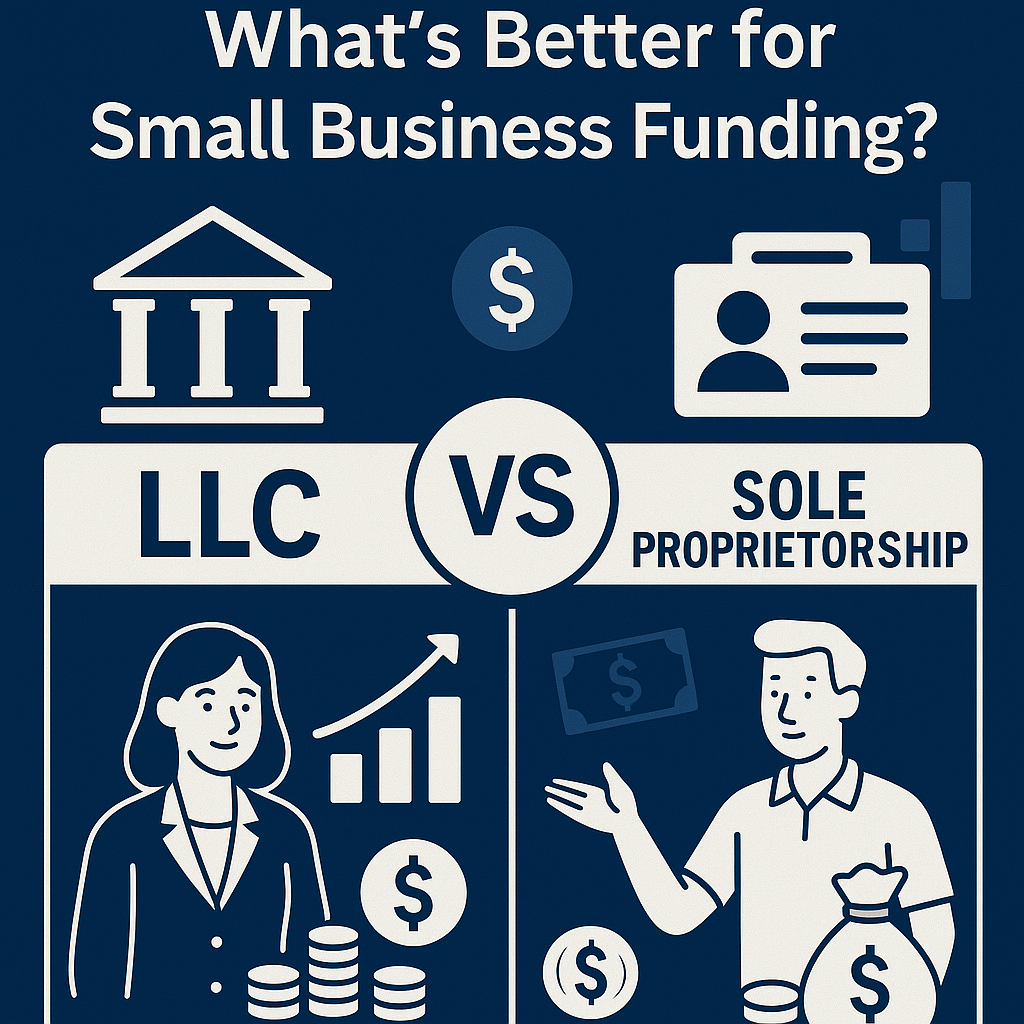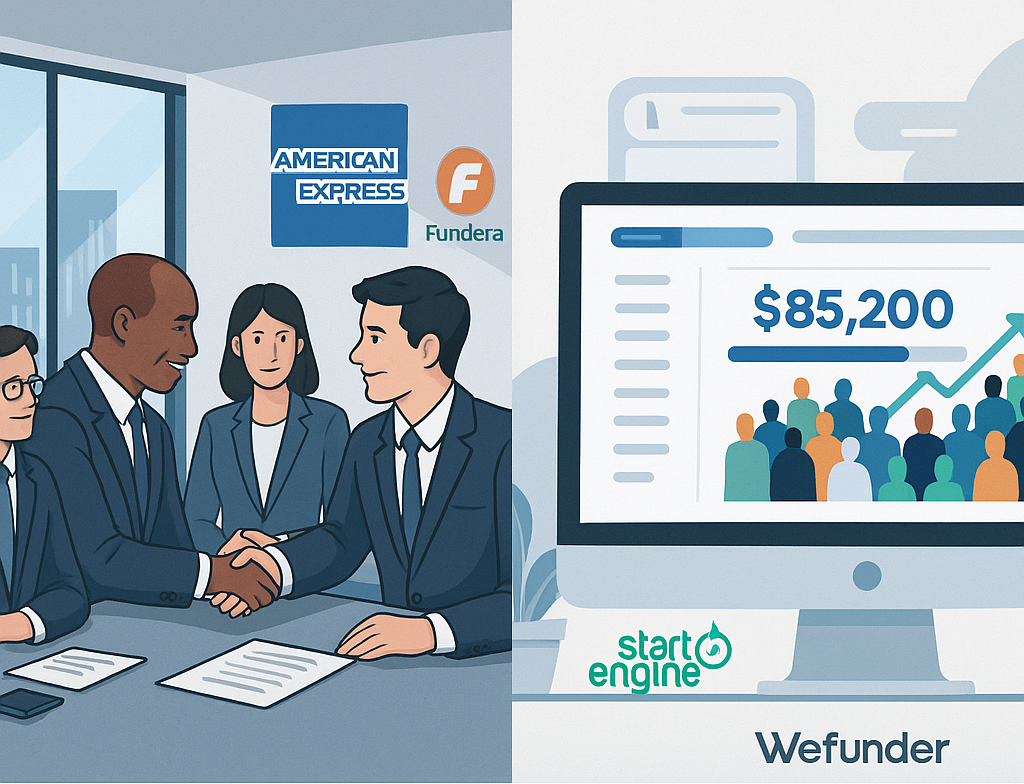Choosing the Right Structure to Fund Your Business
When you’re launching a new business, choosing the right legal structure can dramatically shape your access to funding. Whether you’re applying for a loan, opening business credit cards, or attracting outside investment, the foundation matters. Most new entrepreneurs begin as sole proprietors because it’s simple. But is that the best move for your financial future?
Let’s compare two of the most common small business structures: Sole Proprietorship vs. LLC (Limited Liability Company).
What Is a Sole Proprietorship?
A sole proprietorship is the simplest business entity. It’s not a formal legal structure but rather the default status when one person starts doing business under their own name (or a DBA).
Pros:
- Easy and inexpensive to set up
- No separate tax filing for the business
- Total control over the business
Cons:
- No liability protection
- Harder to separate personal and business finances
- Less credibility with lenders and investors
Funding Challenges for Sole Proprietors
Most banks, lenders, and business credit bureaus want to see a registered legal entity when evaluating applications. Sole proprietors often struggle to:
- Qualify for business credit cards or loans
- Build business credit profiles
- Appear credible to outside investors
What Is an LLC (Limited Liability Company)?
An LLC is a legal business entity that separates your personal assets from your business operations. It’s recognized by all 50 states and is a go-to choice for freelancers, ecommerce brands, agencies, and tech startups.
Pros:
- Liability protection for the owner(s)
- Separate tax and financial identity
- Builds trust with banks, investors, and partners
- Can choose how you’re taxed (default pass-through, or elect S-Corp later)
Cons:
- Requires filing and annual fees
- More administrative responsibilities than a sole prop
Why Lenders Prefer LLCs
Lenders and funding platforms typically view LLCs as more stable and credible. That’s because:
- You can obtain an EIN (Employer Identification Number)
- You’ll have separate business banking
- You can build a true business credit profile
All of this makes it easier to get approved for funding like:
- 0% interest credit lines with Fund&Grow
- Up to $150K in funding from FundWise Capital
Side-by-Side Comparison
| Feature | Sole Proprietorship | LLC |
|---|---|---|
| Legal Protection | None | Yes |
| Ease of Setup | Very Easy | Easy |
| Tax Flexibility | No | Yes (can elect S-Corp) |
| Business Credit Access | Limited | Strong |
| Loan Eligibility | Low | Higher |
| Investor Appeal | Low | Moderate to High |
When Should You Upgrade to an LLC?
You should strongly consider forming an LLC if:
- You’re making more than $5,000/year in revenue
- You plan to apply for funding in the next 6-12 months
- You want to build business credit
- You want to protect your personal assets
Setting up an LLC is fast and affordable with Northwest Registered Agent. They include privacy protection and free tools to maintain compliance.
Don’t Forget the Financial Tools
Once your LLC is in place, set it up for success with the right support tools:
- Xero: Cloud accounting for tracking expenses, invoices, and cash flow
- Bench: Outsourced bookkeeping for growing businesses
These platforms help you present accurate books when applying for loans or lines of credit.
Final Thoughts: Choose Smart for Long-Term Growth
Starting as a sole proprietor is fine if you’re testing an idea. But if you’re serious about scaling, protecting your assets, and unlocking funding opportunities, an LLC is the smarter play.
Your legal structure affects everything from credit access to investor interest to how much you pay in taxes.
Need Help Setting Up or Funding Your Business?
- Set up your LLC with Northwest Registered Agent
- Apply for funding with FundWise or Fund&Grow
- Simplify your finances with Xero or Bench
- Read More at LLC vs. S-Corp vs C-Corp
Next up? Learn how to build credit for your LLC and get approved for funding without going into debt. Coming soon on IncorporateAndGrow.com.


